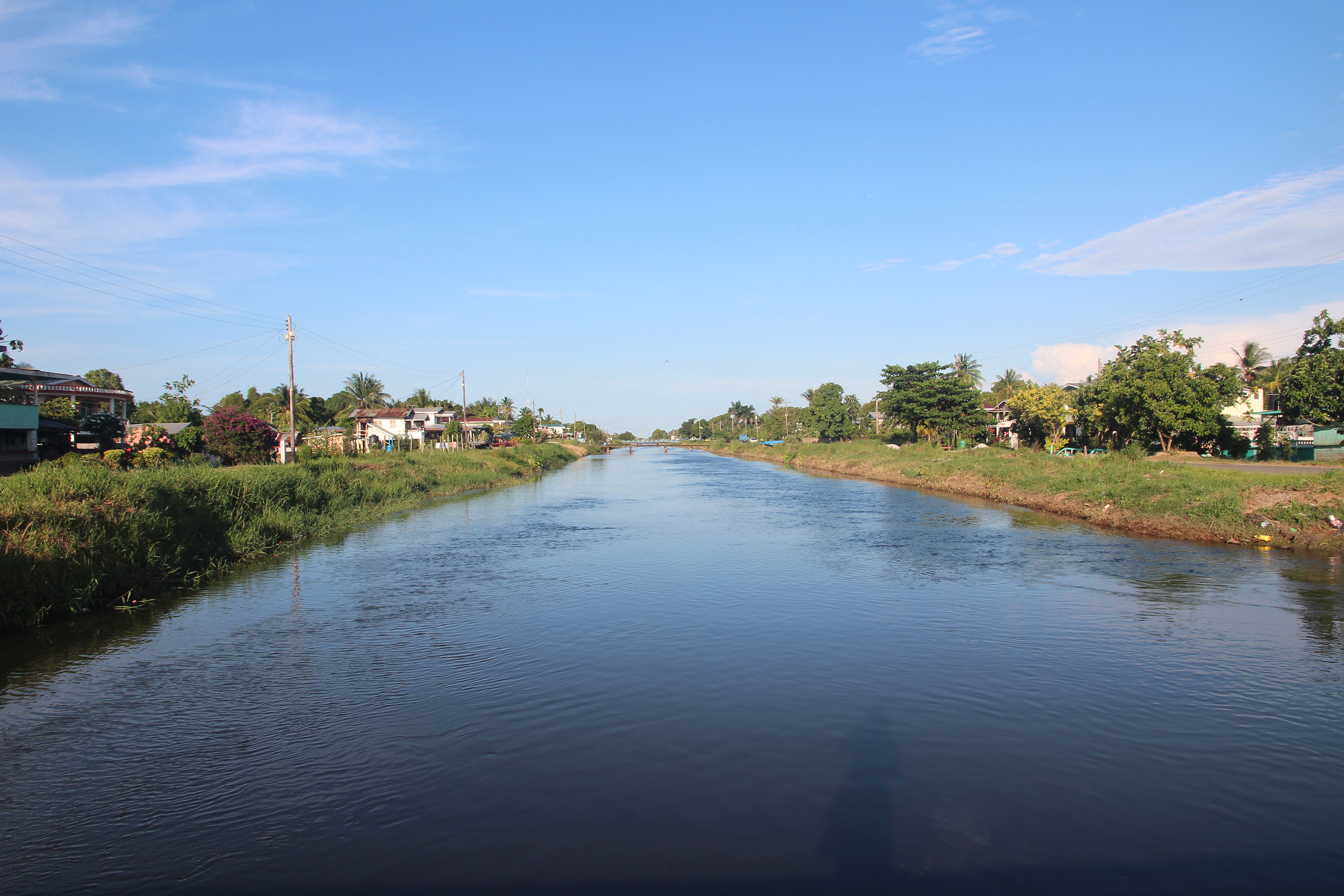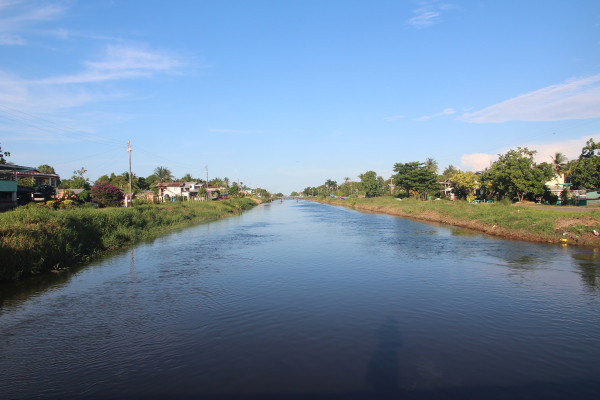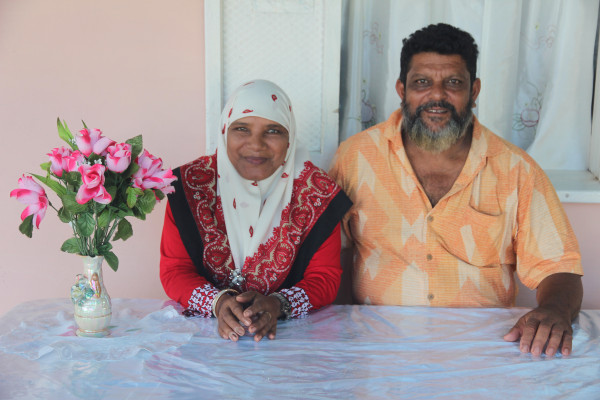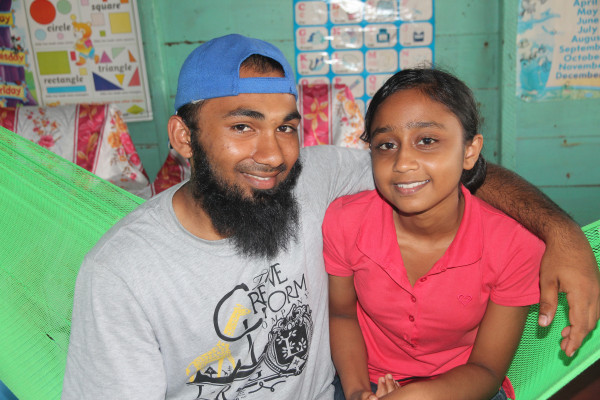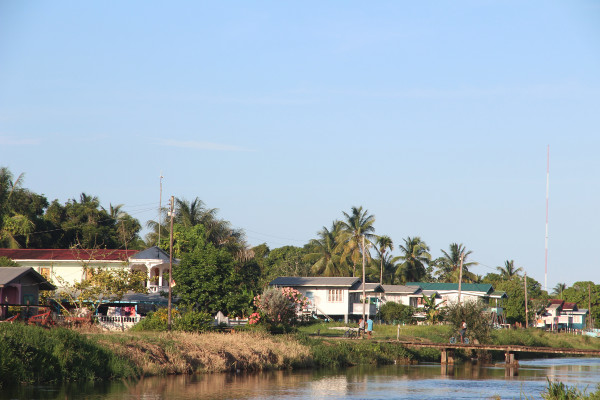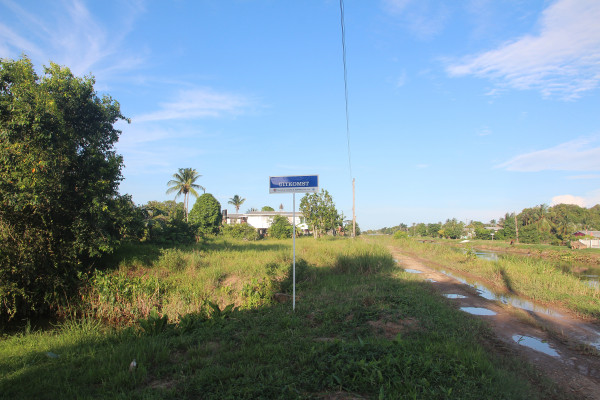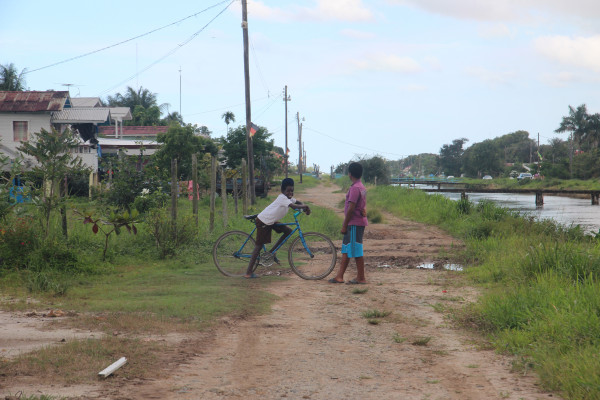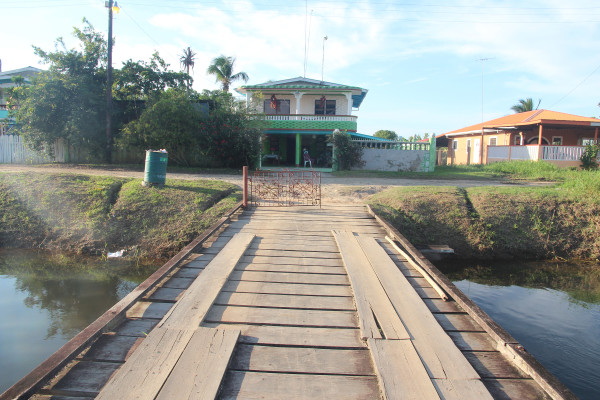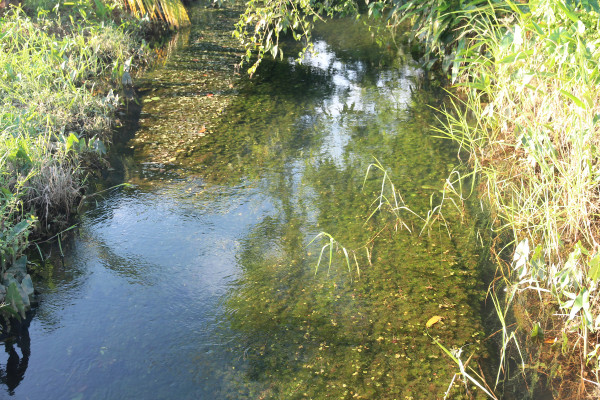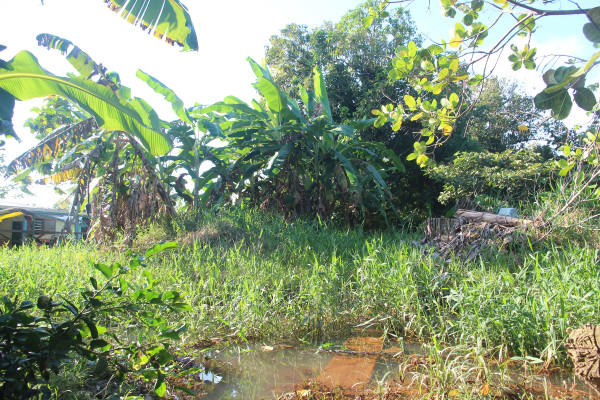Story and photos by Joanna Dhanraj
Uitkomst is a petite village in Canal Number One. In fact, it is so small that it is not well known to persons; some of the drivers of taxis who traverse the area do not even have a clue as to where it is.
A five-minute drive from the Bagotville junction should get you to Uitkomst, which is just three villages before the renowned Two Brothers Village. Uitkomst is obviously a Dutch word and it translates loosely to mean Salvation, Salvage, Godsend or Result, depending on where you do your research. Not many people live at Uitkomst, maybe just over 60 in number and most of them are related and those who aren’t related like family anyhow.
Ninety per cent of the villagers are Indian Guyanese while the remaining ten per cent are African Guyanese. When The World Beyond Georgetown visited, a few of the villagers had balloons tied about their homes in celebration of the recent Eid-ul-Fitr holiday.
At one of the balloon-decked houses, we found a lovely and smiling Shaziela Baksh. After tying the knot with Ameer Rasheed over 19 years ago, she moved from Mon Repos to Uitkomst.
Baksh said that when she first arrived in Uitkomst, what seems to be a bit of a road now used to be a mud dam. Though it has been upgraded a bit to brick and pitch, it is filled with holes too big to be called pot-holes, left by tractors and hymacs.
She said she and other villagers would often try to full the holes with mud but it always returns to the same state. Nineteen years ago too, she said, everyday blackouts were the norm but today that doesn’t seem much of a problem.
Baksh and her husband Rasheed are farmers. They plant mainly sugarcane, pineapple, cassava and citrus which they sell wholesale from their home. According to Shaziela, some of her produce, like the cassava, have been damaged by the steady rain of late.
Most of the children in the village attend the Geneve Nursery and Two Brothers Primary schools, both situated in the same compound.
Two of Baksh’s children attend the nursery and primary schools and she raised concerns about the staircase of the primary school (half of that building houses La Venture Secondary School students), which needs repairing. Another concern of hers is that both schools are bat and mosquito infested, especially the nursery school and though many times parents took it upon themselves to spray the schools, they never seem to rid the schools of these pests.
The mother of four wishes that some measures could be put in place to enhance her community like: a better road, landline phones, better drainage and street lights, since persons going home at nights have to use their phones for light to see where to go.
Apart from her concerns, Baksh said, she enjoys the peaceful atmosphere of her community and looks forward to national holidays where she gets to spend time with her family and a few other families; fishing, having ‘bush-cooks’ and playing games at the backdam.
While The World Beyond George-town was chatting with Baksh, her nephew, Shazam Shadiek, who is visiting her on a break from studies in South Africa, went along with her daughter, Saffiena Rasheed, in search of the oldest villager. They got lucky, finding her at home, as she is wont to go visiting friends in the village.
She came walking down the road excited and barefooted as she likes to be, to see who would be interested in hearing the story of a little old lady.
At the ripe old age of 91 and going strong as ever, Sanchari Beharry also known as ‘Auntie Rosie’ hails from Nonpareil. She was born to parents who came to Guyana by boat from India to work on the Enmore plantation. Her father passed when she was just seven years old. Six months later, she lost her mother too after she died during childbirth. Her father’s brother then took her and her six other siblings to live with him. According to Auntie Rosie, she knew a life of work since then. She remembers taking care of the farm animals and planting rice in the backdam.
Just three years after losing her parents Sanchari lost her brother too. Her eldest brother, Rambarran Beharry, who worked on the Enmore plantation, was one of the five martyrs, who lost their lives during the strike on April 22, 1948.
Auntie Rosie never had the privilege of attending school and at the age of 13, she married Harry Mangal for whom she bore 12 children. Today only eight remain. She and Harry moved to Uitkomst when she was 35 years old. She recalls a place overrun by bushes that they made a track through to walk on. They were seven other houses in the village when she got to Uitkomst; all made of mud and they too got to building their own little mud hut they once called home.
The water they drank then came from a well situated half mile from where they lived, or they caught water when it rained. Clothes were washed using the salt water in the trench and their plants were watered with the black water or fresh water from the canals. Today she still plants, mainly sorrel and vegetables and rears chickens while she lives with her youngest son, Tulatlall Beharry. She enjoys farming and visiting the other villagers and other relatives throughout Guyana.
A busybody, Auntie Rosie doesn’t like to stay in one place for too long and so once she had said her piece, she was off again.
In the heart of Uitkomst lives 56-year-old Shameer Mohamed Rafiek who has lived there all his life. He and his wife Zulaika Ally also known as ‘Rose’ now live alone since their children are all grown up and married.
As a little boy growing up he recalls planting ground provision, sugarcane and fruits in the backdam with his father. His father was also a contractor and he grew up working with him. He took up the trade and works also as a contractor himself. He’s well known here in Canal Number One for his work. Other than his construction work he rears poultry for himself and sells now and again.
There is no place of worship in his village, so the villagers would often travel a few villages away to worship. He tries to visit the Mosque everyday. “We [villagers] don’t discriminate each other’s religion but would often celebrate with each other; visiting homes and sharing sweet meats and other treats whenever there’s a religious holiday,” Rafiek said.
He also shared his concern about the development of the community. “I’d like to see better drainage,” he said. “During the British times and Forbes Burnham’s times the drains were well cleaned but now they’re really clogged.”
Apart from that Rafiek loves living in Uitkomst. “We all live as one,” he said. “We don’t have any barriers or segregation. We help each other however we can.”
